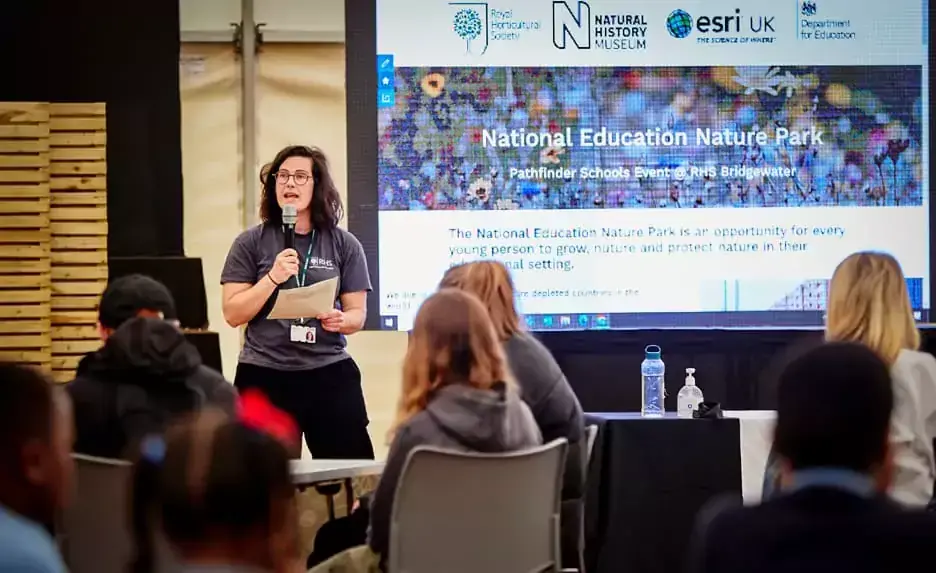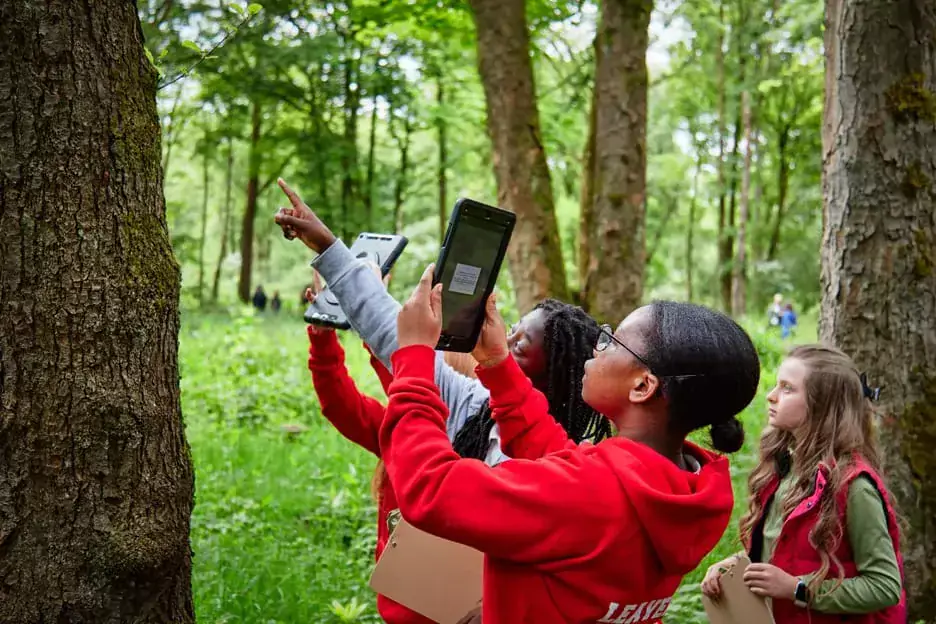Designing the Nature Park: meet the education settings who piloted the programme

39 schools from across the North West and West Midlands took part in the pilot scheme of the National Education Nature Park
The National Education Nature Park has been tested by 3025 young people and 116 teachers in England. Between March and July 2023, 39 Early Years settings and schools from the North West and West Midlands were involved in the pilot scheme and helped shape the activities that form the Nature Park programme. Feedback from the young people and teachers involved has directly shaped the design of the Nature Park and the Nature Park team are extremely grateful to everyone who was involved in the testing. The feedback has been invaluable in designing a flexible programme that can be used in a multitude of ways across a range of different education settings.
Highlights of the pilot phase
- Every child and young person who took part in the pilot phase, from two-year-olds up to age 20, found something that interested them, with teachers reporting that the learners kept asking when they could take part in the Nature Park activities again!
- Learners became more positive towards spending time outside and were comfortable interacting with nature and getting their hands dirty.
- The activities helped bring to life topics that children and young people might not initially show an interest in. The species ID activity for example developed children and young people’s interest in wasps when they learnt that wasps are only able to digest sugar, and that wasps start bothering us because they are searching for sugar!
- Children and young people deepened their understanding of nature and how we can improve biodiversity. For example, in the visualising data activity, learners identified that their school didn’t have much water and that they wanted to see more dragonflies and so concluded that if they had more water on their learning site, they would attract more dragonfiles.
- Older children and young people also enjoyed the pilot phase, with one pupil remembering how they used to climb trees when they were younger and could now begin to notice the different elements of biodiversity that you can find in trees.
- Educators noted that pupils enjoyed being outside and taking time to be still and notice nature, with one teacher saying that their pupils could’ve done the Nature Treasure Hunt activity all day. Pupils felt calm and relaxed taking part and started to notice things they didn’t like about their school grounds and think of ways they could improve it, for both themselves and nature.

How did the pupils find the pilot?
I liked the different range of activities. I think it can raise awareness about protecting the environment and encourage people to help nature thrive
KS2 pupil, St Philip's CE Primary School, Atherton

It was great being in nature, taking a close look and being able to focus on plants and habitats and important that we're looking to make it better in the future. It was really fun looking at the different plants and trees and having the chance to explore the school more. I've seen the school differently
KS3 pupil, Westhoughton High School, Westhoughton
What did teachers think of the pilot?
Teachers reported that the activities worked really well in the classroom, and enabled students to see their school grounds in different ways.
The National Education Nature Park is a great way for children to learn about their natural environment while allowing them to develop their creativity
KS2 teacher, Greater Manchester
The National Education Nature Park is now available to every school, college and nursery in England! Join now and get stuck in to the tried and tested activities.
A special thank you to the following education settings for their involvement in the pilot phase
- All Saints CE Primary School, Farnworth
- Arbour Academy, Salford
- Barton Moss Primary School, Eccles
- Bedford Hall Methodist, Leigh
- Bolton St Catherine's Academy, Bolton
- Castle Vale Nursery School, Birmingham
- Cherry Tree Primary School, Farnworth
- Christ the King RC Primary School, Walkden
- Co-op Academy Manchester, Higher Blackley
- Crocketts Community Primary, Smethwick
- Ellenbrook Community Primary School, Ellenbrook
- Featherstone Nursery school, Birmingham
- Firs Primary School, Castle Bromwich
- Gracelands Nursery School, Sparkbrook
- Grosvenor Road Primary School, Swinton
- Highfields Primary School, Sandwell
- Irlam and Cadishead Academy, Irlam
- Jakemans Nursery School, Balsall Heath
- Kings Norton Nursery School, Kings Norton
- Kings Rise Academy, Birmingham
- Langdon College, Salford
- Letty’s Little Learners Nursery, Birmingham
- Lyng Primary School, Sandwell
- Manley Park Primary School, Manchester
- Marsh Hill Nursery School, Birmingham
- Osborne Nursery School, Birmingham
- Paget Primary School, Birmingham
- Play and Learn Nursery, Sutton Coldfield
- Salford City Academy, Eccles
- Selly Oak Nursery School, Birmingham
- Shenstone Lodge, Lichfield
- Springfield Primary School, Sandwell
- St Edmund's RC Primary, Salford
- St Joseph the Worker RC Primary, Irlam
- St Peter's R.C. High School, Manchester
- St Philip's CE Primary School, Atherton
- Stanville Primary School, Birmingham
- The Nest Nursery Wood End, Birmingham
- Westhoughton High School, Westhoughton